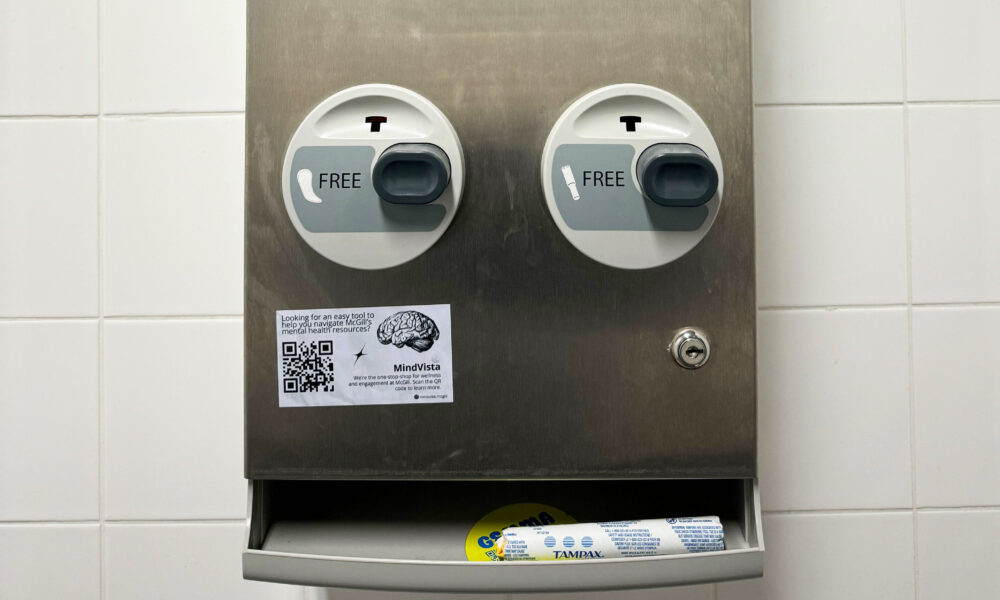If you are a McGill student who menstruates, you’re likely familiar with those seemingly-magically-refilled little caddies in the washrooms stocking plenty of tampons and pads for those in need. The force behind these little baskets is no period fairy, mind you; rather it is the team of six McGill students running the Students’ Society of McGill University (SSMU) Menstrual Health Project.
The SSMU Menstrual Health Project, which started in 2017, aims to provide free period products to the McGill community. It does so by stocking many of the women’s and gender neutral washrooms on campus with pads and tampons, as well as providing free menstrual discs, menstrual cups, tampons, pads, and period underwear at monthly on-campus pickups.
The reasoning behind this initiative is simple: Many are now realizing that menstrual products are a basic hygienic need, akin to toilet paper or soap, but can be very costly.
Julia Miracle, U4 Arts, is the SSMU Menstrual Health Project Commissioner. She credits much of the program’s momentum over the past few years to funding from student fees and from the Sustainability Projects Fund (SPF).
“We had a pretty big rollover of student fees from COVID-19 years, and we received $50,000 from the SPF in 2022, so we were able to scale up and out so much bigger and faster than [programs at] other universities,” Miracle explained in an interview with The Tribune.
On top of this, her committee works to secure partnerships with period brands such as Saalt, Aisle, and Joni, which have been instrumental to the success of the program. Joni provides the project with bamboo-based disposable products like tampons and pads, while Saalt and Aisle supply reusable products for monthly pickups, like menstrual discs, cups, and underwear.
These initiatives are growing nationwide, especially following recent legislation from the federal government requiring free menstrual products to be provided in federal workspaces. Since its debut in 2017, the project has grown in recognition on campus and has been well-received by the McGill community, menstruators or not.
“When I first started on the team in 2021, no one knew about us, and we hadn’t started the monthly pickups,” Miracle said. “It’s been really cool to see how big this has gotten and how much more we’ve been able to communicate with students about our goals.”
For Miracle, much of this communication is around ending period stigma.
“I think a larger goal for us is to kind of shift the needle in the conversation as well by talking about it in a way that’s not gendered and not like making it on the burden of the individual,” she said.
At monthly pickups, Miracle’s team puts this into action by trying to convince even those who don’t menstruate to take a box of products to keep at hand in case someone else is in need.
“You never know if someone else is going to need it; just throw it on a shelf in your washroom at home,” Miracle explained.
The initiative’s seemingly seamless execution can be credited to many factors, funding from the SPF and brand partnerships among them. However, Miracle recognized one vital factor above all: The four coordinators on the team who run the program on the ground.
“Whenever you see a product in the washroom, just know that that’s like our small team of four people going out there every week, keeping those stocked, and I want to give them more credit.”
The SSMU Menstrual Health Project will be hosting its next monthly pickup on February 23, from 11 a.m.-2 p.m. in the Leacock lobby.







